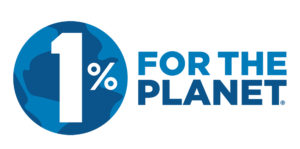- Consultancy opportunity
- Proposal deadline: 31st January 2024
- Competitive package for an NGO.
BACKGROUND
WeForest works in close collaboration with the Senegalese organisation “Oceanium” in the restoration of mangroves in Sine-Saloum and Casamance in Senegal in the frame of the MANCO project. The project’s objective of the first phase is to restore 7,020 ha of mangroves by actively planting Rhizophora and Avicennia species. In addition to this objective of increasing mangrove forest cover, the MANCO project aims to sustainably create more economic and social value from the mangrove ecosystem for rural communities. The MANCO project is also undergoing the process for carbon certification under Verra’s VCS standard with additional CCB certification.
In Sine Saloum, 3,834 ha of mangroves were planted between 2020 and 2022, using propagules of Rhizophora mangle, R. racemosa & R. harrisonii (3,817ha) and nursery-grown seedlings of Avicennia germinans (17 ha). Initial planting densities targeted 5,000 propagules/ha for Rhizophora sp. and 1,000 seedlings/ha for Avicennia sp. Selection of planting sites was based on:
- Evaluation of historical imagery to identify areas where mangroves had been present pre-drought in the 1970s, which was a main driver of mangrove loss in the region; – Consultations with authorities in departments, districts and communes;
- Field-based evaluations considering criteria such as salinity ≤ 65 ppm, pH 6-8, soil structure and proximity of mature mangroves.
Since planting, field and drone-based monitoring have indicated that the density of living mangrove tree seedlings in some areas is very low. Of the 1099 field plots measured in Sine Saloum (circular sampling plots of 314m2) between June 2022 and April 2023, 42% have a density of < 500 living seedlings/ha, while another 41% of sampled plots showed densities of > 1,500 living seedlings/ha. The main biophysical factor(s) driving this wide variation in planting success are not yet understood, posing a significant barrier to the formulation of a remediation strategy for sites with high seedling mortality.
OBJECTIVES
The main objective of this consultancy is to provide a comprehensive evaluation of the key biophysical factors driving seedling survival at the MANCO project site in Sine Saloum, Senegal. This evaluation should be targeted to guide WeForest and its partners in formulating 1) a remediation strategy to address the low seedling densities apparent in the project so far, and 2) an assessment tool for future planting site selection.
METHODOLOGY
1. Desk-based review of existing datasets, spatial data, information and literature.
2. Fieldwork to measure relevant biophysical variables in Sine Saloum in restoration sites with high and low densities of living seedlings after plantation as well as reference natural mangrove stands. Depending on the outcome of 1) such variables could include but are not limited to;
- Salinity, pH and redox potential (at root level; and species-specific)
- Hydrological parameters: e.g. tidal regimes (plantation level), drainage capacity and inundation regimes.
- Site elevation characterisation of plantation sites.
- Biological pests (spiders, barnacles, locusts, etc.)
- Planting density (spacing)
EXPECTED DELIVERABLES AND CALENDAR OF WORK
February-March 2024: desk-based research
- Deliverable 1: Evaluation proposal (by March 15th)
March-April 2024: fieldwork in the Sine-Saloum estuary, Senegal
- Deliverable 2: First draft report (by April 30th)
May 2024: data analyses and final reporting
- Deliverable 3: Second draft report (by May 15th)
- Deliverable 4: Final report (by May 30th)
Weekly meetings will be organised between the consultant and WeForest and a technical meeting will be
organised one week after the submission of each deliverable to discuss the findings, provide feedback
and agree next steps.
All data and analyses generated as part of this evaluation should be submitted to WeForest in an
appropriate format.
For more information, see the Terms of Reference here.
CONSULTANT PROFILE SPECIFICATIONS
Essential:
- Demonstrable relevant experience with restoring mangrove ecosystems, preferably in the SeneGambia region.
- Experience with multiple relevant data collection/analysis methods.
- Ability to perform field work/data collection in the Sine-Saloum estuary for an extended period of time.
- Academic background in one or several relevant fields, e.g. plant ecology, biology, forestry, forest & landscape restoration, landscape ecology, pedology.
- Proficient in French or English (preferably both)
Desirable:
- Experience in short term consultancies and report writing (analysis and formulation of actionable recommendations)
- Experience in using GIS (QGIS) as an analysis and evaluation tool
RESOURCES MADE AVAILABLE TO THE CONSULTANT
- The consultant will benefit from access to relevant WeForest staff to support knowledge gathering and fieldwork planning.
- The consultant will be supported in the field by staff from WeForest and Oceanium for logistical aspects to access the plantation sites.
- The consultant will have full access to all existing data including:
- Field datasets
- Geodata showing plantation polygons
- Drone data and resulting analyses
- Project documentation
CONSULTANCY PROPOSALS
Offers must include:
- A technical offer, including work plan/expected steps (no more than 4 pages)
- A financial offer, including daily rates
- Consultant’s CV demonstrating their ability to fulfil the study
- At least two professional references
- One study/report produced and written by the consultant for similar tasks (if available)








